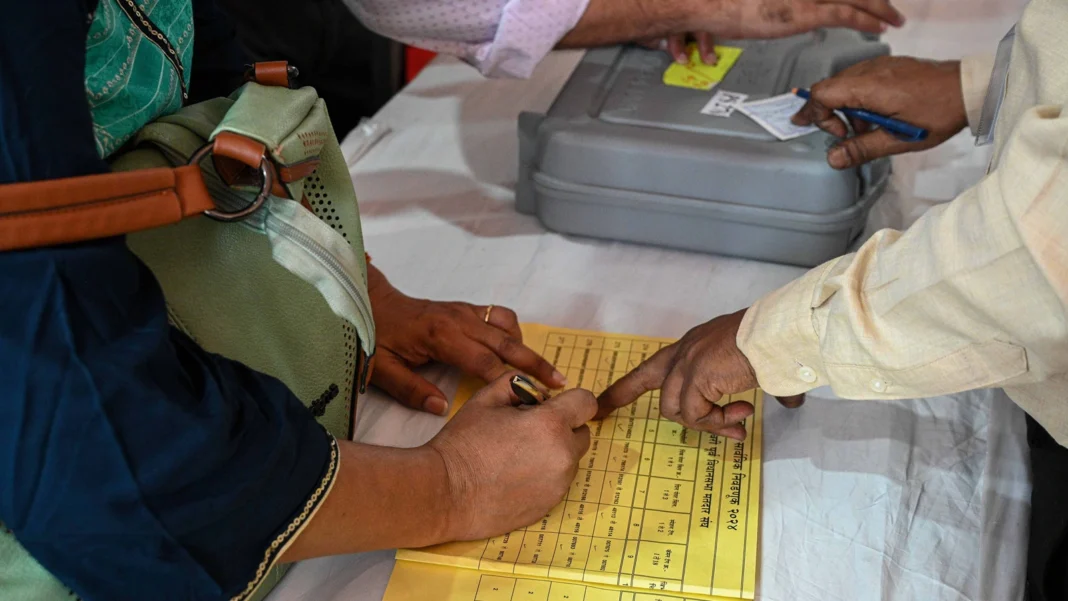Haryana Municipal Elections 2025: BJP Takes Early Lead in Gurugram
The Haryana Municipal Elections 2025 have drawn nationwide attention as political parties battle to control key urban local bodies. With early trends showing the Bharatiya Janata Party (BJP) taking a lead in Gurugram and several other municipalities, the elections have set the stage for an intense political contest. As counting continues, parties, candidates, and voters eagerly await the final results.
Early Trends Favor BJP in Key Urban Centers
As per the initial vote count, the BJP has gained an early advantage in Gurugram, one of Haryana’s most significant municipal bodies. The party’s stronghold in the region appears to be holding firm, thanks to a combination of developmental initiatives, infrastructure projects, and a robust voter outreach campaign.
The opposition, led by the Congress and regional parties like the Aam Aadmi Party (AAP) and Jannayak Janta Party (JJP), is fighting tough in various districts, hoping to dent the BJP’s dominance. However, early trends suggest that the BJP is leading in multiple municipal corporations, including Faridabad, Panchkula, and Ambala, apart from Gurugram.
Key Issues That Shaped the Elections
The 2025 municipal elections in Haryana have been influenced by various factors, with urban development, sanitation, water supply, road infrastructure, and employment opportunities at the forefront of voter concerns. Some of the key issues that impacted the elections include:
- Urban Development and Infrastructure – The BJP has campaigned extensively on its record of infrastructure projects, including road expansion, flyovers, and improvements in public transport. The party has projected its governance model as a reason voters support its candidates.
- Waste Management and Cleanliness—With the Swachh Bharat Mission playing a crucial role in urban governance, voters have scrutinized municipal performance in waste disposal and cleanliness. Several parties have promised better waste management systems and cleaner cities.
- Water and Electricity Supply – Frequent complaints about irregular water supply and electricity issues in growing urban centres have been key election issues. Opposition parties have accused the ruling party of failing to address these fundamental civic concerns.
- Employment and Economic Growth – While municipal elections primarily focus on local governance, job creation and economic stability concern urban voters. Parties have debated strategies to boost local businesses and generate employment opportunities.
- Law and Order – Safety and security, especially in cities like Gurugram and Faridabad, have been public concern. Political parties have promised to strengthen law enforcement and ensure safer urban areas.
Voter Turnout and Demographics
The turnout for the Haryana Municipal Elections 2025 has been relatively high, with urban voters showing increased participation. Gurugram, a major financial and technological hub, saw many young professionals, business owners, and working-class voters coming out to cast their votes.
Women voters also played a crucial role in this election, with many focusing on issues like sanitation, safety, and education. Additionally, first-time voters were a key demographic, as political parties engaged with youth through social media and digital campaigns.
Major Contenders and Political Strategies
The elections saw fierce competition between the BJP, Congress, AAP, JJP, and independent candidates. Each party adopted unique campaign strategies to appeal to the urban electorate.
- BJP: Banking on its governance record, the BJP focused on showcasing its development projects, smart city initiatives, and local welfare schemes. The party’s leaders conducted multiple rallies and public meetings, emphasizing their experience in urban management.
- Congress: The Congress aimed to regain lost ground by targeting the BJP on civic issues like water shortages, waste management failures, and increasing urban pollution. The party also promised more transparency and accountability in municipal governance.
- AAP: The Aam Aadmi Party, which has been expanding its footprint in Haryana, campaigned on its governance model in Delhi, promising improved municipal services, free water, and better school facilities.
- JJP: The Jannayak Janta Party, a regional force, focused on rural-urban concerns, highlighting the need for better connectivity and farmer-friendly policies in urban peripheries.
- Independents: Several independent candidates, backed by local businesses and resident welfare associations, played a crucial role in the elections, particularly in key wards where national parties faced close contests.
Also Read: Election News
Implications of the Results
The Haryana Municipal Elections 2025 outcome will have significant political implications at both the state and national levels. With Haryana scheduled for assembly elections shortly, these results will serve as a barometer of public sentiment towards the ruling BJP government in the state and at the centre.
If the BJP maintains its lead and secures a majority in major municipal bodies, it will strengthen its position before the upcoming state elections. On the other hand, a strong showing by the opposition could indicate shifting voter preferences and set the stage for a more challenging political battle in the assembly elections.
Additionally, these elections could impact governance at the municipal level, influencing how future policies on infrastructure, taxation, and civic amenities are framed.
Conclusion
The Haryana Municipal Elections 2025 have witnessed a high-stakes battle between major political parties, with the BJP taking an early lead in Gurugram and other urban centres. As vote counting progresses, all eyes remain on the final results, determining the political landscape of Haryana’s urban governance.
Key issues like infrastructure, sanitation, law, and order drive voter choices, and these elections will shape the future of Haryana’s municipal administrations. Regardless of the final outcome, one thing is clear: urban governance has taken centre stage, and political parties must focus on delivering results that meet public expectations.
As Haryana moves towards its next electoral phase, these municipal elections will serve as an essential indicator of voter sentiment and future political trends in the state.




